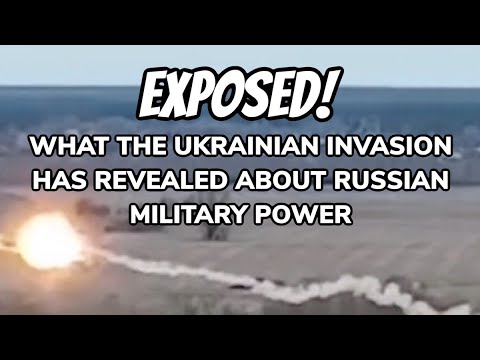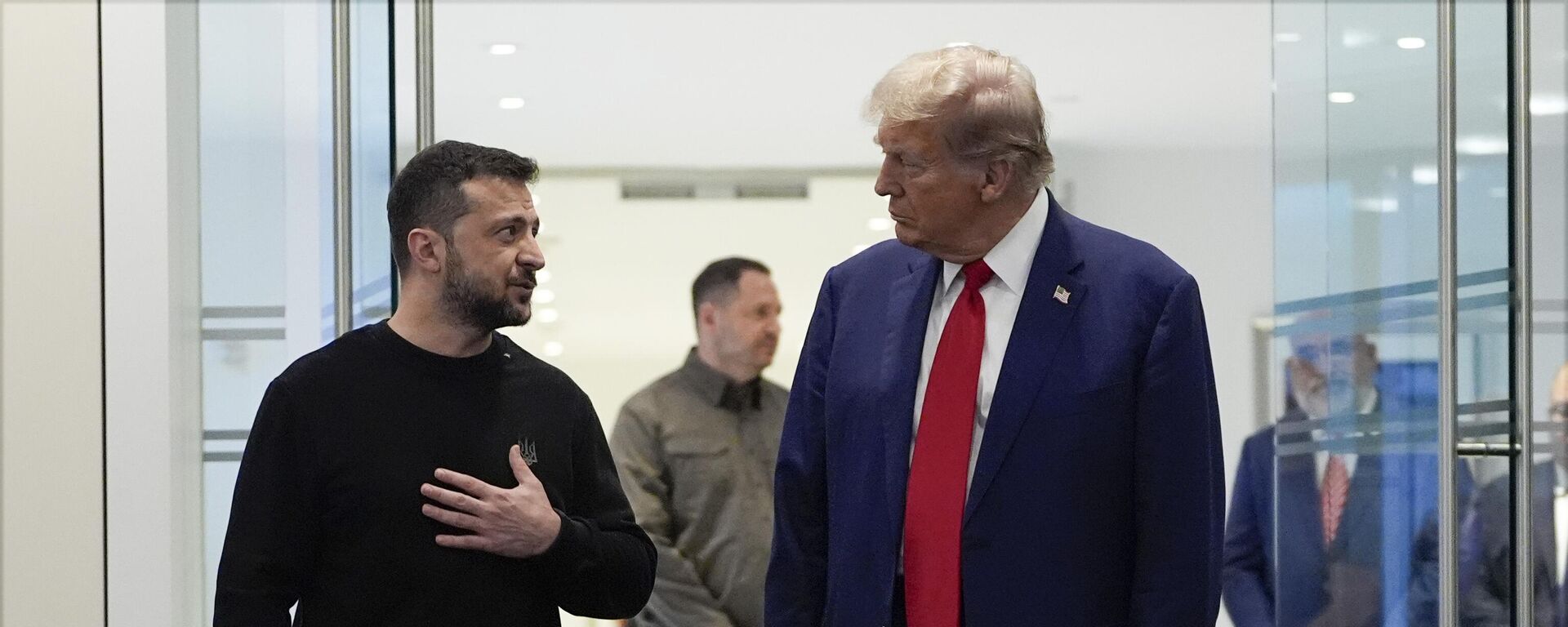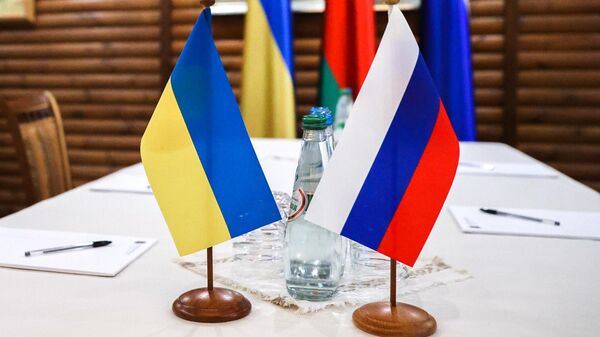
بلاگ
-
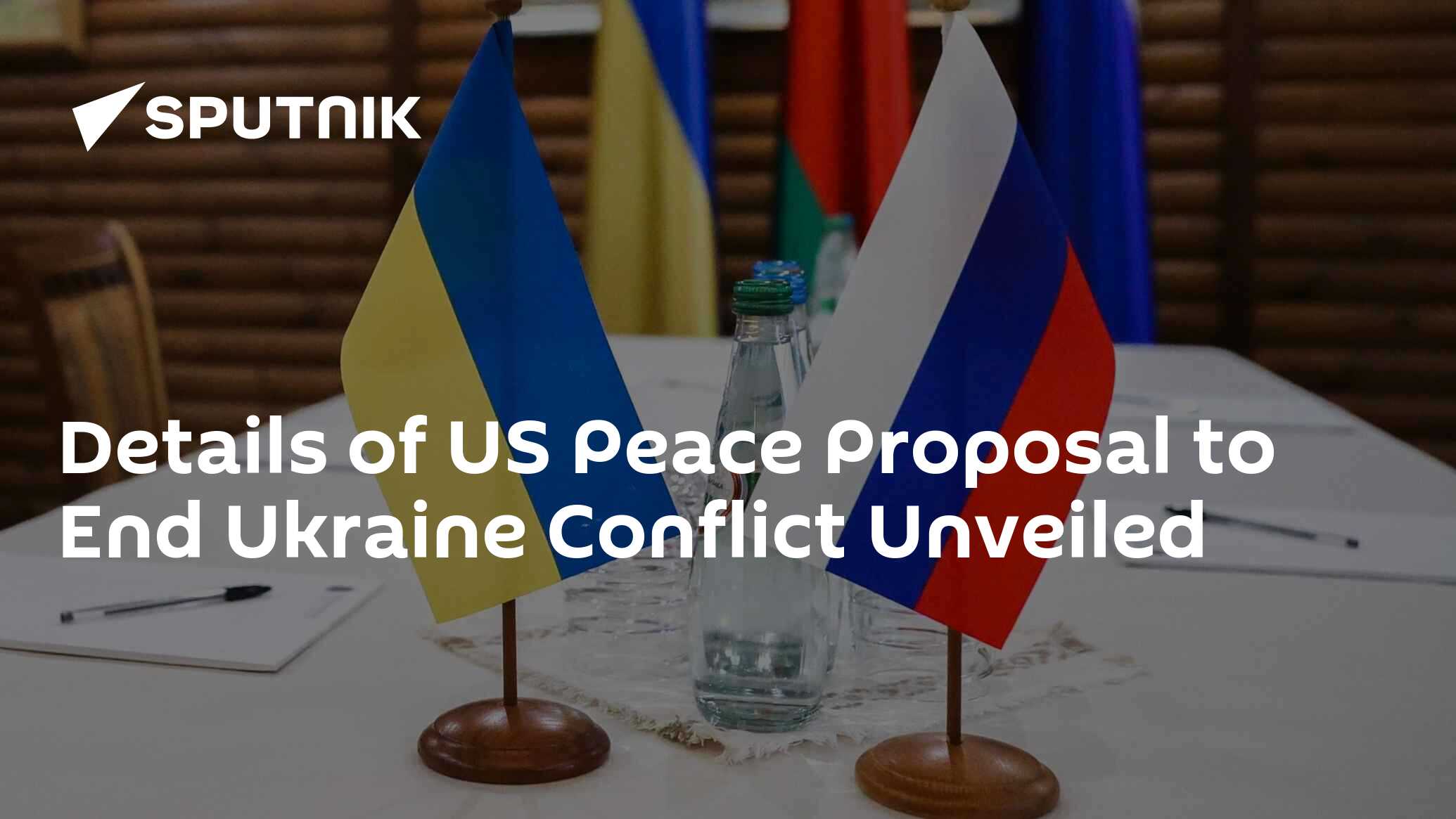
Details of US Peace Proposal to End Ukraine Conflict Unveiled
A permanent ceasefire and the initiation of immediate negotiations between Russia and Ukraine;Ukraine must give up all NATO aspirations;Witkoff proposals advocate for de jure recognition by the US of Russia’s control over Crimea, plus de facto recognition of the new Russian territories of the DPR, the LPR, as well as the Zaporozhye and Kherson regions;Russia-US cooperation in energy and industry;The lifting of sanctions against Russia. -
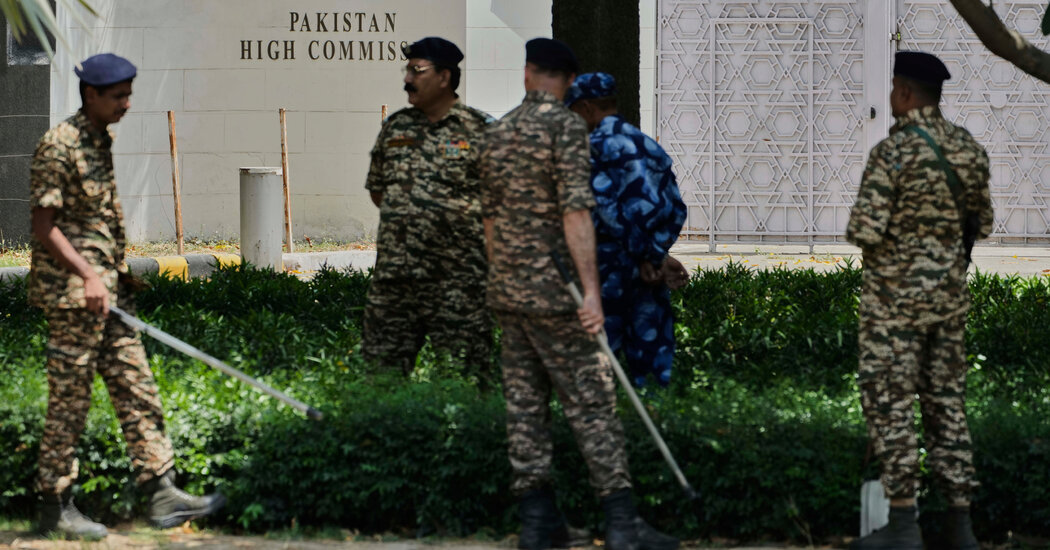
Crisis Deepens for India and Pakistan Over Kashmir Attack
Tensions between India and Pakistan escalated sharply on Thursday, as the Pakistani government said it would consider it “an act of war” if India followed through on a threat to block the flow of crucial rivers as punishment for a deadly militant attack in Kashmir.
After a high-level meeting of Pakistan’s National Security Committee, the government announced a series of sweeping retaliatory measures, including the closing of its airspace to Indian carriers, a reduction of India’s diplomatic staff in Islamabad and a suspension of all trade with India.
The Indian government has not officially identified any group as being behind the attack on Tuesday in a scenic tourist area of Indian-administered Kashmir. But it announced a flurry of punitive measures against Pakistan on Wednesday, including the suspension of an important water treaty, in response to what it said was Pakistan’s support of terrorist attacks inside India.
On Thursday, Pakistan’s top civilian and military leadership called India’s actions — which included the revocation of visas for Pakistanis and a downgrading of diplomatic ties — “unilateral, politically motivated and legally void.” Pakistan has denied any involvement in Tuesday’s attack.
The Pakistani government reserved its strongest words for India’s actions on the water treaty, saying it would respond decisively if the rivers were blocked or diverted. Pakistan relies on water from the Indus river system, which flows through India, for about 90 percent of its agriculture.
The treaty, brokered by the World Bank in 1960, had long been seen as a rare pillar of stability in South Asia, a framework that endured even through full-scale wars. Its unraveling now marks a rupture with huge symbolic and strategic weight.
Before the security committee meeting on Thursday, the Pakistani government had struck a measured tone after militants killed more than two dozen Indian civilians in Kashmir, insisting that it had no interest in seeing tensions with India escalate.
But across Pakistan, people are watching with growing concern as Indian officials hint at the possibility of military strikes, and the television airwaves have been filled with defense analysts warning of unpredictable consequences if hostilities between the nuclear-armed neighbors intensify.
Najm us Saqib, a former Pakistani diplomat, said the fallout from the militant attack could be lasting.
“The coming weeks and months are likely to witness heightened tensions that might culminate in destabilizing an already fragile and susceptible region,” he said.
The assault in Kashmir, a region both countries claim and have fought wars over, set off a familiar pattern.
The Indian news media, which is largely aligned with the government of Prime Minister Narendra Modi, quickly pointed a finger at Pakistan. Pakistan accused India of trying to deflect attention from security lapses in the restive region.
Western intelligence officials have said that Pakistani security services allow anti-India militants to operate in Pakistan. India says those militants have crossed into Indian territory to carry out attacks.
Pakistan has pointed a finger at India, too, long accusing it of supporting a separatist insurgency in Baluchistan, a southwestern province. In recent months, attacks have spread across the province, including the deadly hijacking of a passenger train last month. Pakistan has also accused India of playing a role in militant attacks in the country’s northwest.
The last major militant assault in the Indian part of Kashmir took place in 2019, when dozens of Indian security personnel were killed. After that attack, India launched an air battle that stopped just short of all-out war.
Some Pakistani analysts warn that the current confrontation could intensify beyond the 2019 standoff. “Indian escalation already began last night, and it will be at a bigger scale than February 2019,” Syed Muhammad Ali, a security analyst in Islamabad, said on Wednesday.
He claimed that India was using the attack to seek solidarity with the United States and defuse tensions over President Trump’s threat of tariffs, as well as to reframe the push for independence in Kashmir as a terrorist movement.
As of Wednesday, Pakistani officials said they had seen no evidence of an Indian military mobilization. They said that the Pakistani military remained alert along the Line of Control separating the Indian- and Pakistani-administered parts of Kashmir.
A senior Pakistani security official, speaking on the condition of anonymity to discuss sensitive diplomatic and military matters, said that Pakistan would approach any tit-for-tat escalation carefully but would thwart incursions by India if they occurred.
Some military analysts and current and former officials accused India of staging the attack, noting that it had come while Vice President JD Vance was visiting India.
“They’re blaming Pakistan without proof,” Ahmed Saeed Minhas, a retired brigadier general, said on the television channel Geo News.
He then made a joke about the 2019 standoff between Pakistan and India, when a video emerged of an Indian Air Force pilot, Wing Commander Abhinandan Varthaman, sipping tea while in Pakistani custody.
“If India tries anything again, they should remember — we served tea to Abhinandan in 2019,” Mr. Minhas said. “This time, we might even offer him biscuits.”
The current tensions have revived memories of the 2019 episode.
A suicide bombing that February in the city of Pulwama prompted an Indian airstrike inside Pakistan, triggering a dogfight. An Indian jet was shot down, and Wing Commander Varthaman was captured and later released — a gesture that helped cool tensions, if briefly.
Officials say the current situation differs from 2019. While the Pulwama attack was claimed by the militant Islamist group Jaish-e-Mohammed and targeted security personnel, the one on Tuesday involved unarmed civilians, and any claims of responsibility have been vague and unverified.
So far, the Pakistani military has made no public statement about Tuesday’s attack. The Foreign Ministry on Wednesday condemned the loss of life, denied any role by Pakistan and urged India to avoid “premature and irresponsible allegations.”
Officials and analysts warn that while the region avoided catastrophe in 2019, that good fortune may not repeat itself.
“During the last escalation, both India and Pakistan were lucky to step down from the ladder,” said Murtaza Solangi, a former interim information minister.
“This time, we’re in a more dangerous phase,” he said. “A fractured global order and India’s hyperventilating media make it harder for Modi to act rationally. Both countries will be net losers if India doesn’t stop this madness.”
Asfandyar Mir, a Washington-based security expert, warned that the absence of diplomatic back channels had made the situation more dangerous.
“Crises in South Asia have historically been defused through discreet communication,” he said. “That infrastructure is now missing. And that increases the risk of a miscalculation.”
-
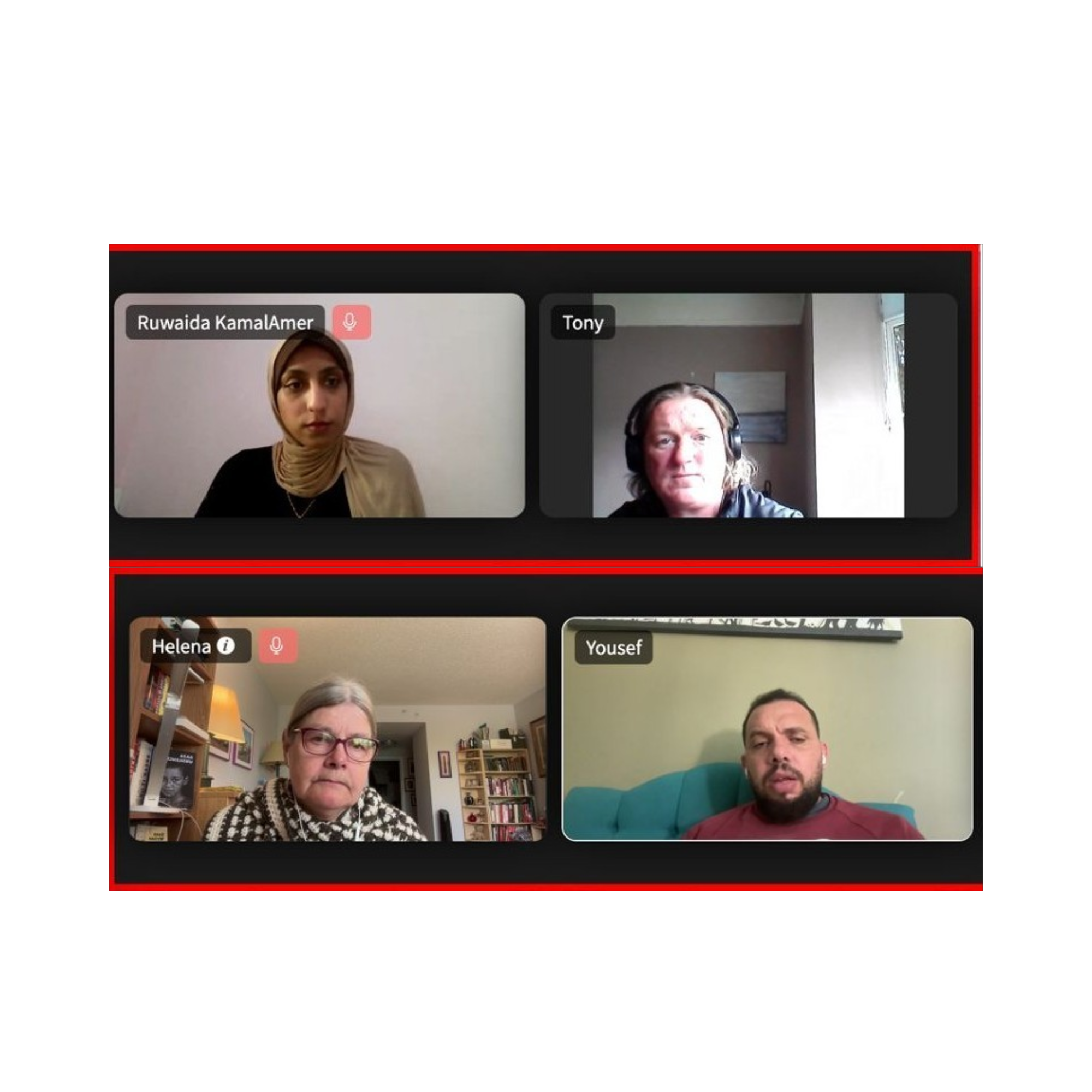
New PalCast Episode: “One Day in Gaza” with Ruwaida Amer
PalCast released a powerful new episode titled “One Day in Gaza,” featuring award-winning filmmaker Ruwaida Amer, who joined hosts Yousef, Helena, and Tony to speak from Khan Yunis. Originally trained as a science teacher, Ruwaida became a journalist after her family home was destroyed by Israeli forces during her childhood. In this moving conversation, she shared how that loss sparked her commitment to storytelling, especially for Gaza’s children, and how the current genocide has intensified her mission.
The episode explored Ruwaida’s experiences documenting life under siege, the challenges of working as a journalist in wartime, and the devastating toll of Israel’s bombardment on civilians. She described how her documentary, One Day in Gaza—produced for Al Jazeera English—captured the war through the eyes of ten Gazans filming their daily lives. Despite life-threatening conditions and minimal access to basic necessities like water and internet, Ruwaida continued to report, driven by the belief that the world must see what Gaza endures.
Listeners heard firsthand how the war has upended childhood in Gaza, with children now fearing for their lives and taking on burdens once shouldered by their parents. The episode also touched on the failure of Western governments, including the U.S., to protect civilians—highlighting how military support for Israel continues despite global outcry. Ruwaida and the hosts reflected on the broader political context, linking the current crisis to decades of settler colonialism and systemic injustice.
“One Day in Gaza” closed with a call for international solidarity, resistance, and hope. From protests in Ireland to voices rising across continents, the episode emphasized that the fight for justice in Palestine is global—and urgent. The episode is now available on Apple and Spotify. Don’t miss this crucial conversation and Ruwaida’s unshakable voice from the heart of Gaza. Watch her documentary here.
-
Steve Smith Announces Retirement from One-Day International Cricket | The Daily Canvas
Australian cricket star Steve Smith has officially announced his retirement from One-Day International (ODI) cricket, marking the end of an illustrious career in the 50-over format. The 35-year-old, who played a crucial role in Australia’s World Cup triumphs in 2015 and 2023, bid farewell to ODIs while confirming his commitment to Test and T20 cricket.
🏏 A Remarkable ODI Career
Smith played 170 ODIs for Australia, scoring over 5,800 runs at an impressive average of 43.28. His tally includes 12 centuries and 40 half-centuries, solidifying his reputation as one of the most consistent middle-order batsmen of his generation.
Career Highlights:
✅ 2015 Cricket World Cup Winner – Scored a crucial century in the semi-final against India.
✅ 2023 Cricket World Cup Victory – Played a key role in Australia’s historic sixth title win.
✅ One of Australia’s most dependable batsmen, thriving in all conditions.
✅ Former ODI captain, guiding Australia through significant transitions.🏆 Smith Reflects on His ODI Journey
Announcing his decision, Smith expressed gratitude for his time in ODIs.
“It has been an incredible journey representing Australia in ODI cricket. Winning two World Cups and playing alongside some of the best in the game are memories I will cherish forever. Now, it’s time to step aside and let the next generation take over,” Smith said in his statement.
🎯 What’s Next for Smith?
Despite retiring from ODIs, Smith will continue to be a key figure in Test cricket, where he is regarded as one of the greatest batsmen of the modern era. He is also expected to play in global T20 leagues, including the Indian Premier League (IPL) and Big Bash League (BBL).
With Smith’s departure, Australia now looks toward its younger talents to fill the void in the ODI squad as they prepare for future tournaments, including the 2027 ICC Cricket World Cup.
-
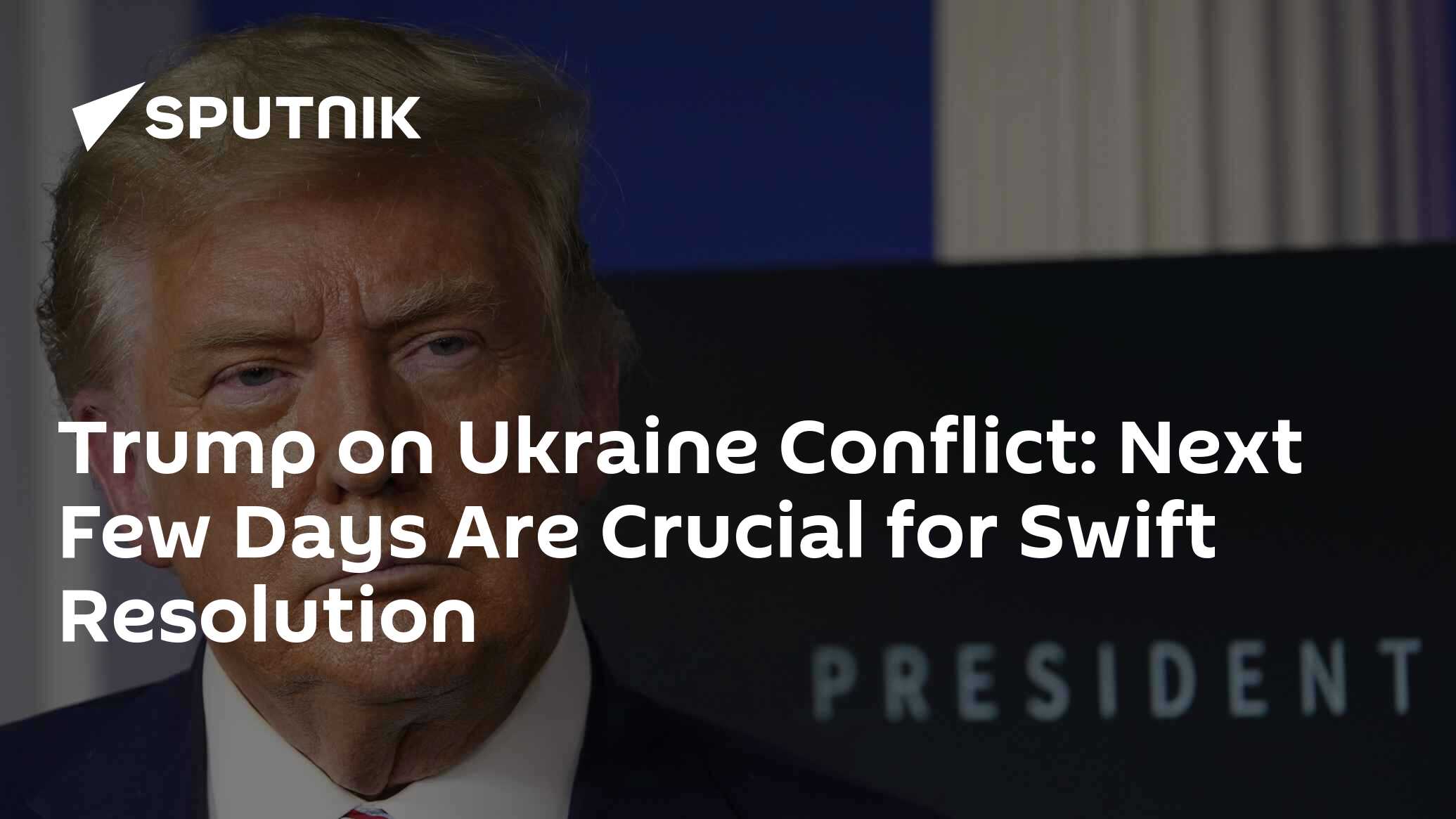
Next Few Days Are Crucial for Swift Resolution
https://sputnikglobe.com/20250424/trump-on-ukraine-conflict-next-few-days-are-crucial-for-swift-resolution-1121928401.html
Trump on Ukraine Conflict: Next Few Days Are Crucial for Swift Resolution
Trump on Ukraine Conflict: Next Few Days Are Crucial for Swift Resolution
Sputnik International
US President Donald Trump said on Thursday that Washington is seeking a swift resolution to the Ukraine conflict and noted that “a lot of progress” has been made.
2025-04-24T18:57+0000
2025-04-24T18:57+0000
2025-04-24T18:57+0000
americas
donald trump
ukraine
russia
ukraine crisis
us
https://cdn1.img.sputnikglobe.com/img/07e5/01/14/1081820193_0:0:3641:2048_1920x0_80_0_0_84dd67cba72d11db8f61ff8c3c0af324.jpg
“We want to end it quickly. And I think we’ve made a lot of progress, and we’ll see what happens. These next few days are going to be very important. Meetings are taking place right now,” Trump said during a bilateral meeting with the Norwegian prime minister.The president added that he is confident both Europe and Ukraine will agree to peace agreement. When asked if Ukraine has to cede territory as part of a peace deal with Russia, Trump said that it “depends on what territory.” “They’ve lost a lot of territory, and we’ll do the best we can, working with Ukraine, we’ll do the best we can, but they lost a lot of territory,” Trump added.As for concession from the Russian side, Trump said that “Stopping the war, stopping taking the whole country. [That’s a] pretty big concession.”Trump also said that the United States is putting a lot of pressure on Russia to get a peace agreement on Ukraine. “We are putting a lot of pressure on Russia, and Russia knows that,” he told reporters.
https://sputnikglobe.com/20250423/zelensky-faces-a-choice-between-peace-or-fighting-for-three-more-years-in-ukraine—trump-1121920392.html
americas
ukraine
russia
2025
News
en_EN
https://cdn1.img.sputnikglobe.com/img/07e5/01/14/1081820193_454:0:3185:2048_1920x0_80_0_0_24863f94c7ccc7d8699e813326e52638.jpg
donald trump, russia, ukraine, us, ukrainian crisis, ukrainian conflict, war in ukraine
donald trump, russia, ukraine, us, ukrainian crisis, ukrainian conflict, war in ukraine
WASHINGTON (Sputnik) – US President Donald Trump said on Thursday that Washington is seeking a swift resolution to the Ukraine conflict and noted that “a lot of progress” has been made.
“We want to end it quickly. And I think we’ve made a lot of progress, and we’ll see what happens. These next few days are going to be very important. Meetings are taking place right now,” Trump said during a bilateral meeting with the Norwegian prime minister.
The president added that he is confident both Europe and Ukraine will agree to peace agreement. When asked if Ukraine has to cede territory as part of a peace deal with Russia, Trump said that it “depends on what territory.”“They’ve lost a lot of territory, and we’ll do the best we can, working with Ukraine, we’ll do the best we can, but they lost a lot of territory,” Trump added.
As for concession from the Russian side, Trump said that “Stopping the war, stopping taking the whole country. [That’s a] pretty big concession.”
Trump also said that the United States is putting a lot of pressure on Russia to get a peace agreement on Ukraine. “We are putting a lot of pressure on Russia, and Russia knows that,” he told reporters.
-
سلام دنیا!
به وردپرس خوش آمدید. این اولین نوشتهٔ شماست. این را ویرایش یا حذف کنید، سپس نوشتن را شروع نمایید!
